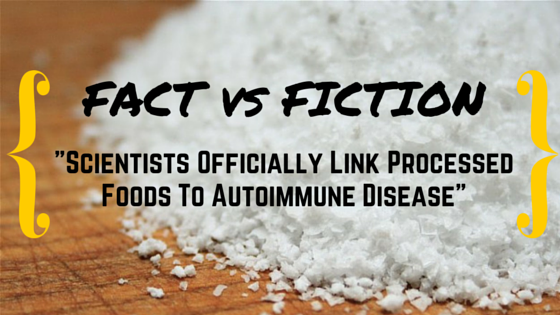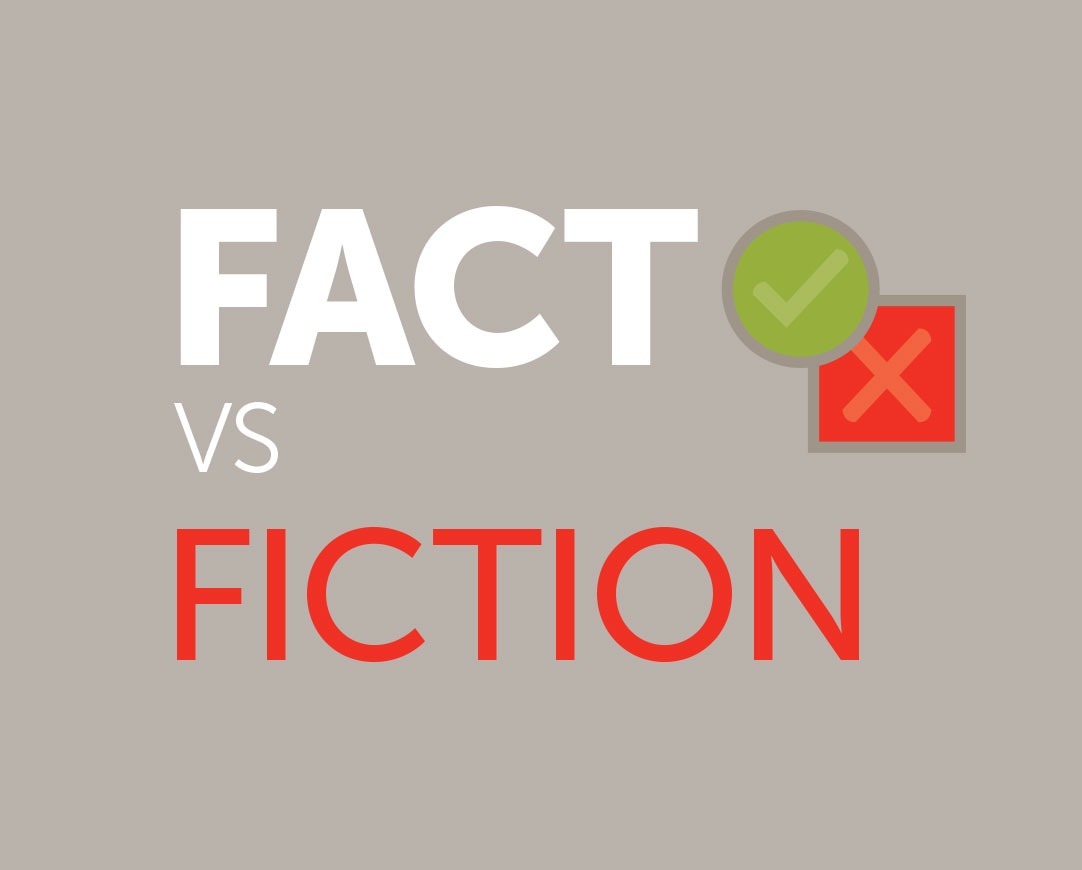Finding reliable, accurate information about the novel coronavirus COVID-19 is becoming more convoluted each day, especially when it comes to social media. With an overwhelming amount of information, it can be difficult to decipher fact versus fiction. Craig Martin, a professor and associate dean at the University of Kentucky College of Pharmacy, is the course coordinator for the comprehensive infectious diseases course in the Doctor of Pharmacy curriculum. He is busting myths and sharing truth about COVID-19 and its impact your community.
Fact or Fiction: The coronavirus can spread through the air and on surfaces. Game 35: january 30, 2015the initials game.
Hamilton: Fact or fiction? Broadway's Hamilton is an absolute sensation. The streaming service Disney Plus released a filmed version of the stage production on July 3, 2020, and America tuned in. The American Civil War is brought to life through the personal and horrifying accounts of soldiers from both sides of the conflict. CIVIL WAR: BLOOD ON THE BATTLEFIELDS chronicles the epic struggle for the fate of the nation in a three-part series that follows two proud regiments, one from Massachusetts and one from Virginia. The Fox News drama 'Bombshell' blurs the line between fact and fiction—including implying that then-candidate Donald Trump poisoned Megyn Kelly before a GOP presidential debate. Fact Vs Fiction: Busting Social Media Myths On Coronavirus. Social media is filled with myths about how people might stop the new coronavirus. Updated: March 19, 2020 12:11 pm IST. Coronavirus: Fact vs Fiction CNN. It is good to know your podcast can be trusted to get the true facts. Facts, not Fiction.
Martin: Fact. Every time you sneeze, cough or even speak, you expel tiny droplets of air. Those droplets are either inhaled by others (if you are in very close contact) or they land on surfaces. Since the virus can survive outside the human body, someone else can contract the virus by contact with those surfaces.
Fact or Fiction: Thenovel coronavirus COVID-19 lives on surfaces for 48-72 hours.
Martin: Fact, and possibly longer. For this reason, disinfection of all surfaces is extremely important. High-touch surfaces are particularly vulnerable to contamination.
Fact or Fiction: Everyone who contracts the novel coronavirus COVID-19 has the same symptoms.
Martin: Fiction. As with many infections, symptoms can vary among those infected. Not everyone will have a fever, but most patients will have cough and upper respiratory symptoms, like a cold.
Fact or Fiction: Symptoms of the novel coronavirus COVID-19 appear immediately or else you're not infected.
Martin: Fiction. In fact, symptoms are likely to take several days to appear and you are highly likely to be contagious before you even know you're sick. This is why social distancing is so important, even for those who feel healthy.
Fact or Fiction: Speaking of social distancing -- this means I cannot go outside at all. I must stay inside to stay safe.
Martin: Fiction. You are not at risk for contracting the virus by taking walks outside, as long as social distancing is maintained. Physical health and exercise are very important, and we all need to take care of ourselves. Go take a walk.
Fact or Fiction: Young, healthy adults are safe and shouldn't be concerned about contracting the disease.
Martin: Fiction. No one is totally safe. While we are mostly concerned about the elderly and those with chronic health problems, young people can be affected as well. Beyond that, it is important for us to think about our friends and loved ones. Staying home is inconvenient and it compromises our way of life, but it is vital to protect my parents, your parents, our grandparents and friends with heart and lung disease. This is a time for us to step up and protect our most vulnerable.

Fact or Fiction: Gargling warm water or salt and vinegar eliminates the virus from your system.
Stunt dirt bike free flash games to play. Martin: Fiction. The only truly effective way to avoid the novel coronavirus COVID-19 infection is to avoid exposure.
Fact or Fiction: A hot bath can keep you from contracting the virus.
Martin: Fiction. Hot baths are great, but their benefits are probably only comfort-related. They cannot prevent COVID-19.
Fact or Fiction: Drinking water will prevent infection.
Martin: Fiction, but drinking water is still important -- crucial, in fact. Not because it will prevent infection, but because your body requires adequate hydration, and this is especially important when you are sick. It will not prevent infection but may help limit some of the serious effects of illness.
Fact or Fiction: The virus is heat resistant.


It's important to listen to health care experts and find trusted news sources who you know are giving up-to-date information about the novel coronavirus COVID-19 and its impact on your community, which is changing day by day, hour by hour. Martin believes the best sources of information is the Center for Disease Control and Prevention at cdc.gov. Locally, Martin suggests tuning into the press conferences that Kentucky Governor Andy Beshear and his staff are holding each day. You can also find Kentucky data at kycovid19.ky.gov.
Fact vs Fiction
Fact is defined as a piece of information about a circumstance that existed or events that have occurred. It is merely saying the information that is verified to be true or had actually occurred.
Fact came from the Latin word 'factum' meaning 'event or occurrence or something done'. So in essence, it is a circumstance that had happened. In ancient times, people refer to 'fact' as a finished event. This is mainly why the justice system simply wants the facts ‘' a report of the event.
In the modern sense, fact is often considered as the truth. It can be defined as 'something that is known to be true' or 'something that has actually occurred'. However there are lots of debates whether to consider facts as true because , if one has to report something that occurred, it is limited or exaggerated by one's own perception. What can be considered as a fact for, as one may not be the same for the other.
Even long established historical accounts that are long considered to be facts by many are debated to be not true. Other parties may shun declared facts as they perceive the occurrence otherwise. So the term 'historical fact' can still be subjective and not considered as the truth.
Having said that, the definition 'something that is known to be true' is rather correct. It means that a thing to be considered as fact,it must at least be known by the majority as the truth. Nevertheless, it can still be debated and proved otherwise. Take this for example, the world being flat is considered by ancient people as truth, therefore a fact at that time. Only a few discard this assertion in which some believed that it was spherical. Eventually, the earth was indeed proven to be not flat but spherical and now, that new fact remains to be known as true.
So in essence, fact should be defined as 'something collectively perceived to be true'.
Fiction, on the other hand, is defined as 'an imaginative creation or a pretense that does not represent actuality but has been invented'. It came from the Latin word 'fictio' meaning 'the action of shaping, a feigning, that which is feigned'. From its root word it is apparent that fiction comes from a verb which means feign or pretend.
When one pretends, it comes from the mind or imagination and it is something artificial. Fiction is definite in its meaning that it is not true but a product of the mind. That is why when people say fiction, they often think about novels and movies because such things are product of imagination and artistic creativity. Fiction is never considered to be true like fact is. It is clear in its presentation that it is only an invention.
Summary:

Fact or Fiction: Gargling warm water or salt and vinegar eliminates the virus from your system.
Stunt dirt bike free flash games to play. Martin: Fiction. The only truly effective way to avoid the novel coronavirus COVID-19 infection is to avoid exposure.
Fact or Fiction: A hot bath can keep you from contracting the virus.
Martin: Fiction. Hot baths are great, but their benefits are probably only comfort-related. They cannot prevent COVID-19.
Fact or Fiction: Drinking water will prevent infection.
Martin: Fiction, but drinking water is still important -- crucial, in fact. Not because it will prevent infection, but because your body requires adequate hydration, and this is especially important when you are sick. It will not prevent infection but may help limit some of the serious effects of illness.
Fact or Fiction: The virus is heat resistant.
Martin: Very high heat (think boiling) will kill the virus. Warm weather (think summer) may reduce the virus's spread, but we will have to wait and see.
It's important to listen to health care experts and find trusted news sources who you know are giving up-to-date information about the novel coronavirus COVID-19 and its impact on your community, which is changing day by day, hour by hour. Martin believes the best sources of information is the Center for Disease Control and Prevention at cdc.gov. Locally, Martin suggests tuning into the press conferences that Kentucky Governor Andy Beshear and his staff are holding each day. You can also find Kentucky data at kycovid19.ky.gov.
Fact vs Fiction
Fact is defined as a piece of information about a circumstance that existed or events that have occurred. It is merely saying the information that is verified to be true or had actually occurred.
Fact came from the Latin word 'factum' meaning 'event or occurrence or something done'. So in essence, it is a circumstance that had happened. In ancient times, people refer to 'fact' as a finished event. This is mainly why the justice system simply wants the facts ‘' a report of the event.
In the modern sense, fact is often considered as the truth. It can be defined as 'something that is known to be true' or 'something that has actually occurred'. However there are lots of debates whether to consider facts as true because , if one has to report something that occurred, it is limited or exaggerated by one's own perception. What can be considered as a fact for, as one may not be the same for the other.
Even long established historical accounts that are long considered to be facts by many are debated to be not true. Other parties may shun declared facts as they perceive the occurrence otherwise. So the term 'historical fact' can still be subjective and not considered as the truth.
Having said that, the definition 'something that is known to be true' is rather correct. It means that a thing to be considered as fact,it must at least be known by the majority as the truth. Nevertheless, it can still be debated and proved otherwise. Take this for example, the world being flat is considered by ancient people as truth, therefore a fact at that time. Only a few discard this assertion in which some believed that it was spherical. Eventually, the earth was indeed proven to be not flat but spherical and now, that new fact remains to be known as true.
So in essence, fact should be defined as 'something collectively perceived to be true'.
Fiction, on the other hand, is defined as 'an imaginative creation or a pretense that does not represent actuality but has been invented'. It came from the Latin word 'fictio' meaning 'the action of shaping, a feigning, that which is feigned'. From its root word it is apparent that fiction comes from a verb which means feign or pretend.
When one pretends, it comes from the mind or imagination and it is something artificial. Fiction is definite in its meaning that it is not true but a product of the mind. That is why when people say fiction, they often think about novels and movies because such things are product of imagination and artistic creativity. Fiction is never considered to be true like fact is. It is clear in its presentation that it is only an invention.
Summary:
1. Fact comes from the latin word 'factum' meaning 'event or occurrence or something done' while fiction comes from the latin word 'fictio' meanning 'the action of shaping, a feigning, that which is feigned'
2. Modern meaning of Fact is 'something collectively perceived to be true' while Fiction is 'an imaginative creation or a pretense that does not represent actuality but has been invented'.
3. Facts can be true while fiction is pure imagination.
4. Fact may start from perceived occurrence or incidence while fiction always begins in the mind.
5. Fact is not created but perceived while fiction is always created by imagination.
- Difference Between CP and CPK - June 8, 2010
- Difference Between PPTP and L2TP - June 7, 2010
- Difference Between CEO and Chairman - June 6, 2010
